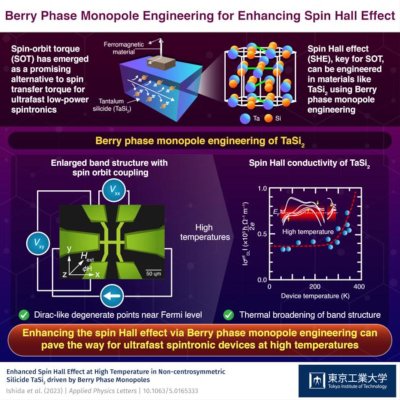Researchers use Berry phase monopole engineering for high-temperature and low-power spintronic devices
Researchers at Japan's Tokyo Institute of Technology (Tokyo Tech) have demonstrate the concept of Berry phase monopole engineering of the spin Hall effect in non-centrosymmetric silicide TaSi2.
Image credit: Tokyo Tech
Spin-transfer torque is an important phenomenon that enables ultrafast and low-power spintronic devices. Recently, however, spin-orbit torque (SOT) has emerged as a promising alternative to spin-transfer torque. Many studies have investigated the origin of SOT, showing that in non-magnetic materials, a phenomenon called the spin Hall effect (SHE) is key to achieving SOT. In these materials, the existence of a “Dirac band” structure, a specific arrangement of electrons in terms of their energy, is important to achieving large SHE. This is because the Dirac band structure contains “hot spots” for the Berry phase, a quantum phase factor responsible for the intrinsic SHE. Thus, materials with suitable Berry phase hot spots are key to engineering the SHE.





